The New First Ladies in Politics
The politicians and social activists who are changing the world.

Jody Wilson-Raybould
Introducing the first Indigenous person to be justice minister and attorney general.
She isn’t sure exactly when it happened, but at some point in 2016 the realization began to sink in for Jody Wilson-Raybould that she is the first Indigenous person to be appointed justice minister and attorney general of Canada. She can, though, think of two standout moments from last year: “the emotion that was felt by all when we launched MMIWG [the national inquiry into missing and murdered Indigenous women and girls]” and when she met Charlie Lowthian-Rickert, a trans tween, just prior to the introduction of Bill C-16, which would make it illegal to discriminate against gender-diverse Canadians. “For me, Charlie and her parents are the embodiment of a Canada that celebrates diversity and embraces acceptance,” says Wilson-Raybould.
Last year, the Vancouver Granville member of Parliament also introduced long-awaited assisted-dying legislation and worked on a new selection method to choose Supreme Court justices. She admits she is dealing with a lack of sleep, as she has never been busier in her life. “I think I have ticked off approximately half of the tasks that I was given,” she says of the mandate Prime Minister Justin Trudeau gave her when he appointed her in November 2015. Her 2017 to-do list includes spring plans to introduce legislation for the legalization of cannabis, cleaning up antiquated aspects of the Criminal Code, working with Indigenous peoples to “decolonize Canada’s laws and policies” and fleshing out long-term reforms to the criminal justice system. On a personal level, the former marathon runner, who is a member of the Musgamagw Tsawataineuk and Laich-Kwil-Tach people of Northern Vancouver Island, admits she has “extremely high expectations” for herself. Here’s yet another goal: She wants to get back to regular running sessions and sign up for some kind of race. “Distance to be determined,” she says. “Work-life balance is always a challenge—I do not think I have found it yet.”
Another thing the former Crown prosecutor, land claims treaty negotiator and regional chief of the B.C. Assembly of First Nations has struggled with since her arrival in Ottawa is the divisive nature of Parliament. “It’s still way too over-partisan and at times overly harsh,” says Wilson-Raybould. “It will continue to be a challenge to change it.” But a bright spot for her has been being part of Canada’s first gender-balanced Cabinet. “Although I have never been in a Cabinet before, I have sat around a boardroom table where I was the only woman. So I think it does make a difference that our Cabinet is gender balanced,” she says. “I do not think politics needs to be so visceral, and in this regard, women do bring a different perspective. I know that it might sound clichéd, but it really can be less aggressive.” —Christina Reynolds
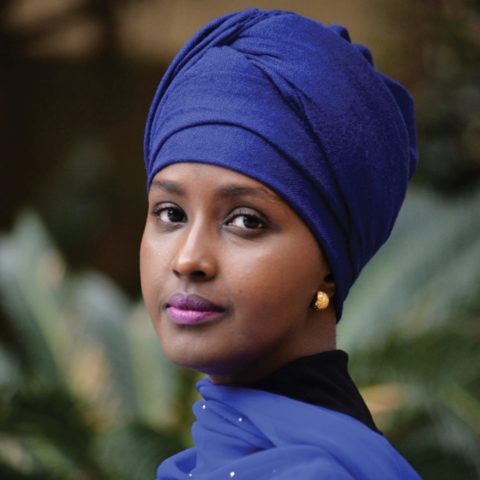
Fadumo Dayib
Dayib is the only woman running to be the president of Somalia.
More than 26 years after fleeing Somalia’s civil war, Helsinki-based Somalian refugee Fadumo Dayib is running for president of her home country (despite the fact that she has virtually no chance of winning) to help raise awareness about issues like female genital mutilation.
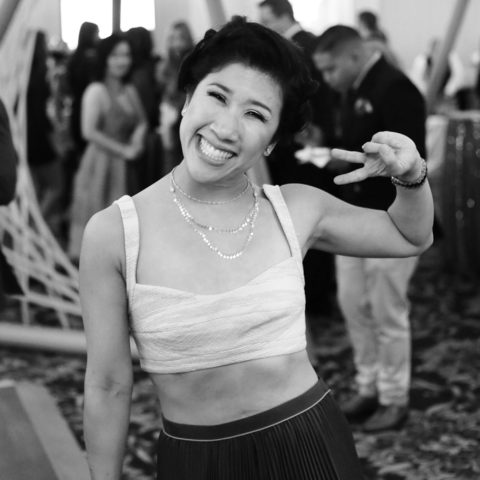
Sarah Chan
Chan is the first lady of Edmonton.
Before her partner, Don Iveson, became mayor of Edmonton, Sarah Chan was already a fierce social advocate. She founded and led the United Way Alberta Capital Region youth initiative to end poverty and has been a longtime proponent of active transport. (She wrote her master’s thesis on European and North American cycling culture.) It’s her personal life that’s disarmingly accessible, and she documents it through her blog and selfies on Instagram (@misssarahchan). With a J.Law kind of charm, Chan, 36, is the city’s dream BFF: stylish, funny and sure to let loose on the dance floor at the many fundraising galas she attends (often adorned in Canadian labels). She’s also mom to kids Dexter and Alice and a full-time piano teacher. (She trains 36 students from her home studio.) For Chan, the sense of civic duty goes beyond the call. —Caroline Gault

Hannah Alper
When you listen to Toronto-based Hannah Alperr’s TED Talk, it’s hard not to feel like a schlep. The 14-year-old has been gaining buzz as an eco-warrior and youth-empowerment speaker since she launched her blog, callmehannah.ca, at nine. Now she’s motivating thousands as a Free the Children ambassador, Me to We motivational speaker and World Wild Life Fund team captain. —Alexandra Breen
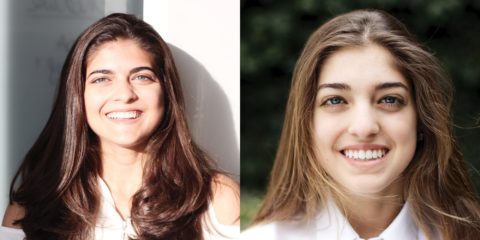
Linda Manziaris and Susanna Manziaris
Toronto-based sisters Linda and Susanna Manziaris are a power duo. They returned from a family trip to Kenya hell-bent on building schools and raising money for scholarships for girls. Susanna, 20, started the charity GirlsHelpingGirls.ca, and Linda, 17, created a jewellery line, Bodybijou.com, which donates 50 per cent of proceeds to her sister’s cause. —A.B.
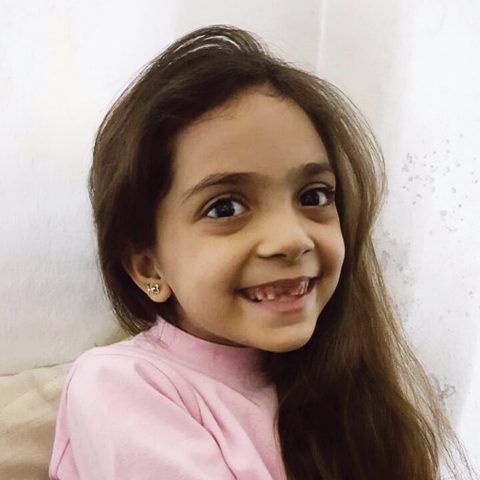
Bana Alabed
This seven-year-old Syrian girl gained international attention for tweeting, alongside her mother, live from Aleppo. She became a poster child for children living through the nightmares of war while simultaneously putting a spotlight on both the controversial nature and massive global reach of social media. In December, she was safely evacuated from the war-torn city, according to the IHH Humanitarian Relief Foundation. —A.B.
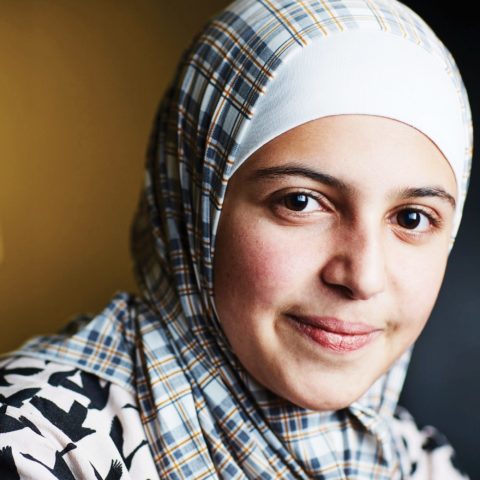
Muzoon Al-Mellehan
Muzoon Al-Mellehan is a British-based 18-year-old Syrian refugee who is determined to educate women in her homeland about the importance of prioritizing education over the customary practice of viewing marriage as a means to a promising future. “If your marriage isn’t working, education can be a weapon to escape,” she told The Guardian. “If you are not educated, then nothing can protect you.” —A.B.







